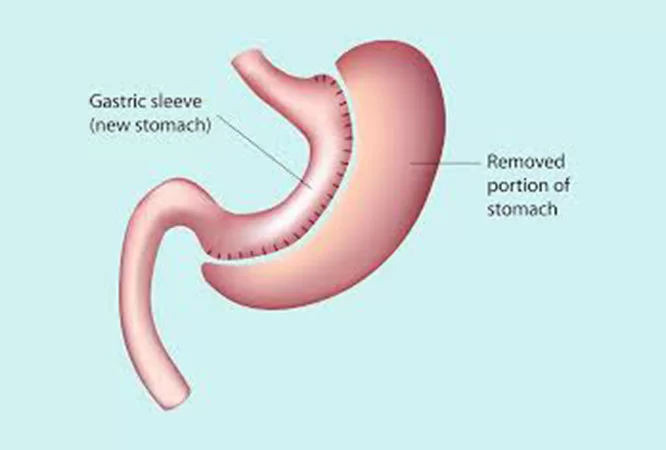Gastric Sleeve
- Home Page
- Gastric Sleeve

gastric sleeve surgery: a solution for obesity
Gastric Sleeve Surgery is a popular method to address obesity, which can lead to various health risks such as heart disease, diabetes, hypertension, and even certain types of cancer. This procedure can help patients who struggle with weight loss and need a more permanent solution.
causes of obesity
Obesity is a multifactorial disease influenced by:
- Genetics: Inherited traits can affect fat storage and metabolism.
- Lifestyle: Unhealthy eating habits, lack of physical activity, and high-calorie diets are common contributors.
- Medical Conditions: Some medications or conditions like arthritis or depression can also lead to weight gain.
Making lifestyle changes such as improving your diet, exercising, and reducing stress can help, but sometimes surgery is necessary.
what is gastric sleeve surgery?
During gastric sleeve surgery, a portion of your stomach is removed, reducing its size by about 75-90%. The remaining portion forms a small sleeve-like structure that limits how much you can eat and helps you feel full more quickly.
- Duration: The procedure takes about 1 hour.
- Incisions: Small incisions are made for a laparoscope (a tiny camera), which guides the surgeon during the operation.
- Hospital Stay: Patients typically stay in the hospital for 2-3 days after surgery.
- Irreversible: Unlike some other weight-loss surgeries, gastric sleeve is a permanent procedure.
who is eligible?
Gastric sleeve surgery is typically recommended for people with a Body Mass Index (BMI) of 40 or higher. It is a suitable option for those who haven’t been able to lose weight through traditional methods like diet and exercise.
post-surgery diet
After the procedure, your diet will go through several stages:
- Clear Liquids: Right after surgery, you'll start with clear liquids to allow your stomach to heal.
- Pureed Foods: For the first 4 weeks, you'll be able to eat foods mashed into a puree, along with protein drinks.
- Soft Solids: Gradually, you can switch to soft solids, chewing thoroughly to avoid discomfort.
- Solid Foods: After 2-3 months, you can return to regular solid foods, but in much smaller portions.
Key dietary habits post-surgery include:
- Chew slowly and thoroughly.
- Avoid drinking with meals, and wait 30 minutes before or after eating.
- No carbonated drinks or sugary snacks.
- Take vitamins and supplements as recommended by your doctor.
how much weight will i lose?
Patients typically lose about 60% of their excess weight within 12 to 18 months after surgery. The success of the procedure depends on maintaining a healthy diet and engaging in regular exercise.
potential side effects
After surgery, some patients may experience:
- Nausea or constipation.
- Difficulty tolerating certain foods that were previously enjoyed.
gastric sleeve results
To maintain weight loss and stay healthy, you should incorporate:
- Regular Exercise: Aim for 150-300 minutes of moderate physical activity each week, such as walking, swimming, or household chores.
- Healthy Diet: Focus on nutrient-rich foods, including fruits, vegetables, and whole grains, while avoiding foods high in fat, sugar, and calories.
- Track Your Progress: Monitoring your weight loss journey can keep you motivated and help you maintain your results.
gastric sleeve surgery in turkey
Turkey is a top destination for gastric sleeve surgery, offering high-quality care at affordable prices. Clinics in Istanbul, like Health Garden, provide advanced technology and experienced surgeons to ensure a safe and comfortable experience for patients.
gastric sleeve costs
The cost of gastric sleeve surgery varies depending on individual needs, but Turkey offers this service at a competitive price compared to other countries. Contact us to learn more about pricing and to receive a personalized consultation.
